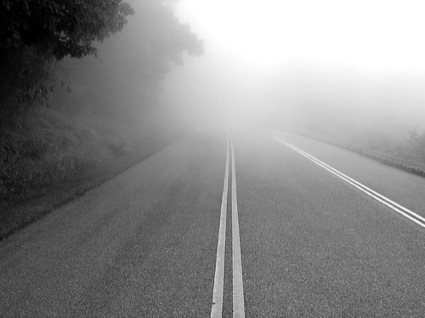
I had taken little more than a year and a half, counting from the time I read Gilson‘s The Spirit of Medieval Philosophy to bring me up from an “atheist”-as I considered myself-to one who accepted all the full range and possibilities of religious experience right up to the highest degree of glory.
I not only accepted all this, intellectually, but now I began to desire it. And not only did I begin to desire it, but I began to do so efficaciously: I began to want to take the necessary means to achieve this union, this peace. I began to desire to dedicate my life to God, to His service. The notion was still vague and obscure, and it was ludicrously impractical in the sense that I was already dreaming of mystical union when I did not even keep the simplest rudiments of the moral law. But nevertheless I was convinced of the reality of the goal, and confident that it could be achieved: and whatever element of presumption was in this confidence I am sure God excused, in His mercy, because of my stupidity and helplessness, and because I was really beginning to be ready to do whatever I thought He wanted me to do to bring me to Him.
But, oh, how blind and weak and sick I was, although I thought I saw where I was going, and half understood the way! How deluded we sometimes are by the clear notions we get out of books. They make us think that we really understand things of which we have no practical knowledge at all. I remember how learnedly and enthusiastically I could talk for hours about mysticism and the experimental knowledge of God, and all the while I was stoking the fires of the argument with Scotch and soda.-Thomas Merton, The Seven Storey Mountain, p.204
